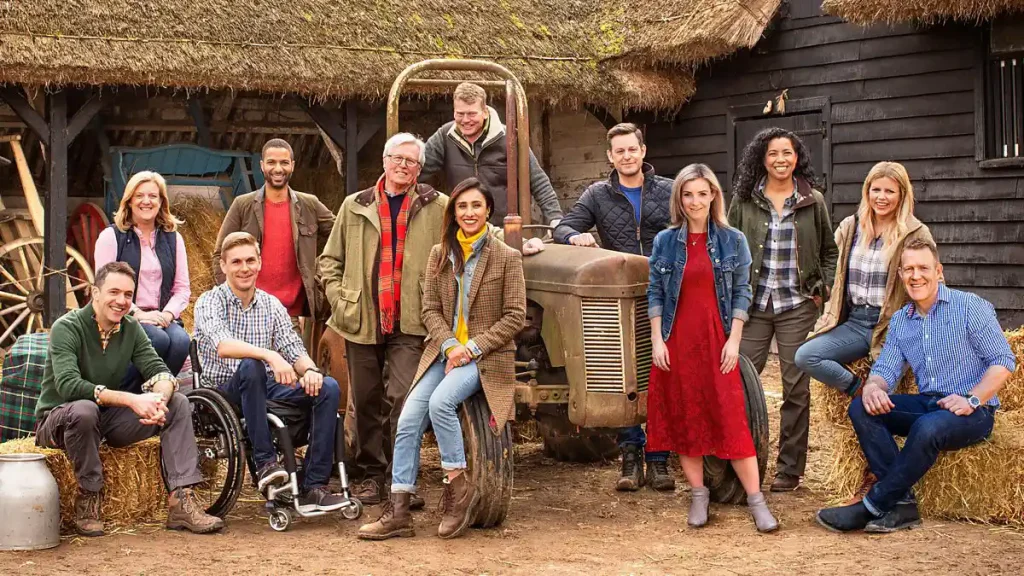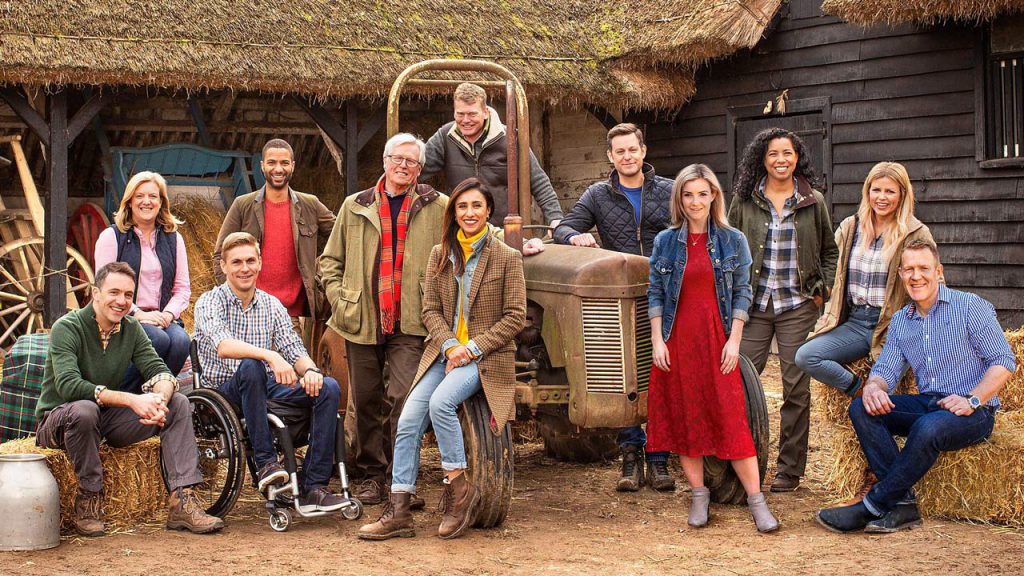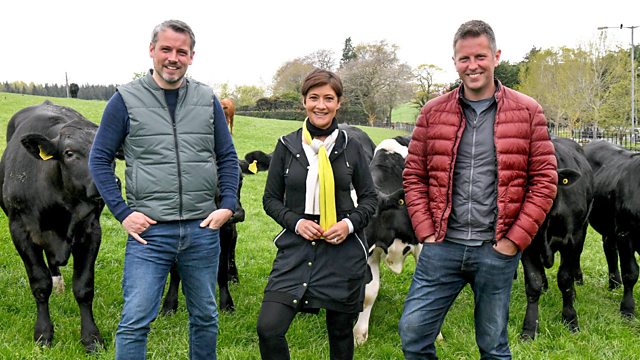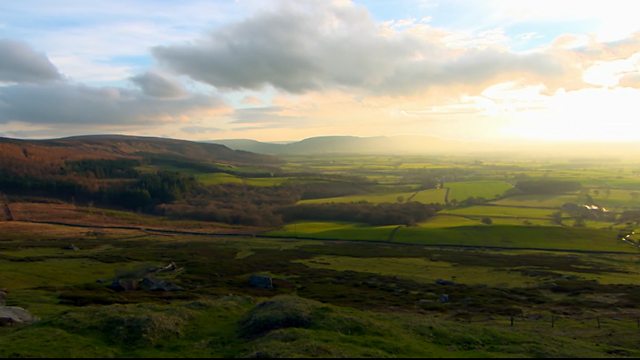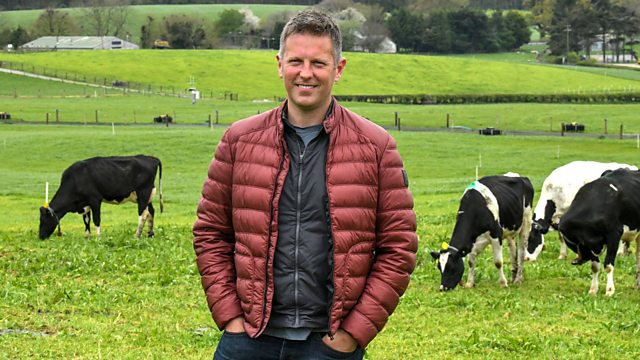Countryfile – South Downs – John Craven and Sammi Kinghorn embark on an enlightening journey to the scenic South Downs, uncovering how historical insights are guiding present-day efforts to conserve this ecologically rich and varied terrain. Delving deep into the legacy of Gilbert White, John discovers how White’s 18th-century correspondences, filled with meticulous observations of wildlife behavior, have not only influenced Charles Darwin’s groundbreaking theories but are also currently motivating a group of dedicated farmers.
These farmers are passionately working to safeguard the fragile ecosystem of the South Downs. Furthermore, John ventures into the region’s ancient woodlands, where he encounters Lucy Wall-Palmer, a skilled charcoal collier. Lucy imparts her knowledge of producing sustainable charcoal, a practice pivotal for maintaining ecological balance.
Simultaneously, Sammi Kinghorn has a fascinating encounter with Lisa Tupper, a sheep farmer with a unique historical connection. Lisa’s family, while ploughing their fields in the 19th century, stumbled upon a hidden treasure – an ancient Roman villa. This extraordinary discovery is further illuminated by Dr. Miles Russell, an archaeologist, who joins them to discuss the historical significance of such a find and its implications for understanding our past.
Meanwhile, Datshiane Navanayagam spends an immersive 48 hours with a resilient community of hill farmers in Northumberland. These farmers lead a life devoid of mains electricity, a choice that presents both challenges and insights into sustainable living. Datshi explores the nuances of their lifestyle, investigating how these families manage to maintain modern living standards in the 21st century without mains power, the impact of such a choice on their daily lives, and the ongoing debate about connecting them to the national grid, a topic that has seen decades of discussion and refusal.
Lastly, Adam Henson delves into an innovative agricultural method that could revolutionize farming. He investigates how a unique volcanic rock and a groundbreaking trial are poised to transform the way farmers fertilize their soil. This new approach not only boosts agricultural productivity but also holds the promise of significantly reducing environmental impact, marking a significant step towards sustainable farming and planetary conservation.
Countryfile – South Downs- The Historical Influence of the South Downs on British Life
The Legacy of Gilbert White and Darwinian Insights
In the heart of the British countryside, the South Downs region stands as a testament to the intricate relationship between history and nature. Gilbert White’s 18th-century observations, documenting animal behavior in this area, notably influenced Charles Darwin’s evolutionary theory. Today, this legacy continues to inspire farmers in their quest to preserve the delicate ecosystem of the South Downs. Our exploration of this region reveals how these historical insights are actively shaping modern sustainable farming practices.
Unearthing the Past: Roman Villas and Agricultural Heritage
The discovery of an ancient Roman villa by the Tupper family in the 19th century highlights the South Downs’ rich historical tapestry. This archaeological treasure offers a unique window into past rural traditions and farming methods, providing invaluable insights for contemporary agricultural practices. Joining forces with experts like Dr. Miles Russell, we delve deeper into understanding how these historical findings enrich our knowledge of rural British life and its evolution.
The Natural Wonders of the South Downs
The Diverse Ecosystem and Wildlife Conservation Efforts
The South Downs is not just a historical marvel; it’s a biodiversity hotspot. The area’s ancient woodlands and meadows are home to a plethora of British wildlife, making it a crucial region for conservation efforts. Our journey through these landscapes uncovers the intricate efforts undertaken to protect and nurture this rich biodiversity, highlighting the region’s commitment to wildlife conservation.
Sustainable Living: Lessons from Hill Farmers in Northumberland
In a remarkable blend of tradition and modernity, hill farmers in Northumberland demonstrate sustainable living without mains electricity. Their efforts underscore the importance of balancing 21st-century needs with environmental considerations. This segment showcases the impacts and challenges of such a lifestyle, offering insights into sustainable rural living.
Innovations in Farming and Conservation
Sustainable Farming Practices and Soil Health
Adam Henson’s exploration of sustainable farming practices, including the use of volcanic rock, illustrates the innovative approaches being adopted to enhance soil health while minimizing environmental impact. These practices are pivotal in ensuring the longevity and productivity of farming in the South Downs and beyond, reflecting a broader commitment to environmental sustainability.
Charcoal Production: A Sustainable Craft
Our encounter with Lucy Wall-Palmer, a charcoal collier, sheds light on the sustainable production of charcoal in the South Downs’ woodlands. This traditional craft not only supports the local economy but also plays a vital role in maintaining the ecological balance of the area.
Frequently Asked Questions
Q: How do the historical insights of Gilbert White influence modern farming?
A: Gilbert White’s detailed observations of animal behavior have inspired contemporary farmers to adopt sustainable farming methods that protect and enhance the South Downs ecosystem.
Q: What is the significance of the Roman villa discovered in the South Downs?
A: The discovery of the Roman villa offers a unique perspective on the historical agricultural practices of the region, enriching our understanding of rural British life and farming heritage.
Q: What conservation efforts are in place in the South Downs?
A: The South Downs boasts a range of conservation initiatives, including wildlife habitat protection, sustainable farming practices, and the preservation of ancient woodlands.
Q: How do Northumberland’s hill farmers live sustainably without mains electricity?
A: These farmers have adapted to a sustainable lifestyle that balances modern needs with environmental conservation, often using alternative energy sources and traditional farming techniques.
Q: What role does charcoal production play in the South Downs?
A: Sustainable charcoal production in the South Downs supports local economies and plays a crucial role in woodland management, helping maintain the area’s ecological balance.
